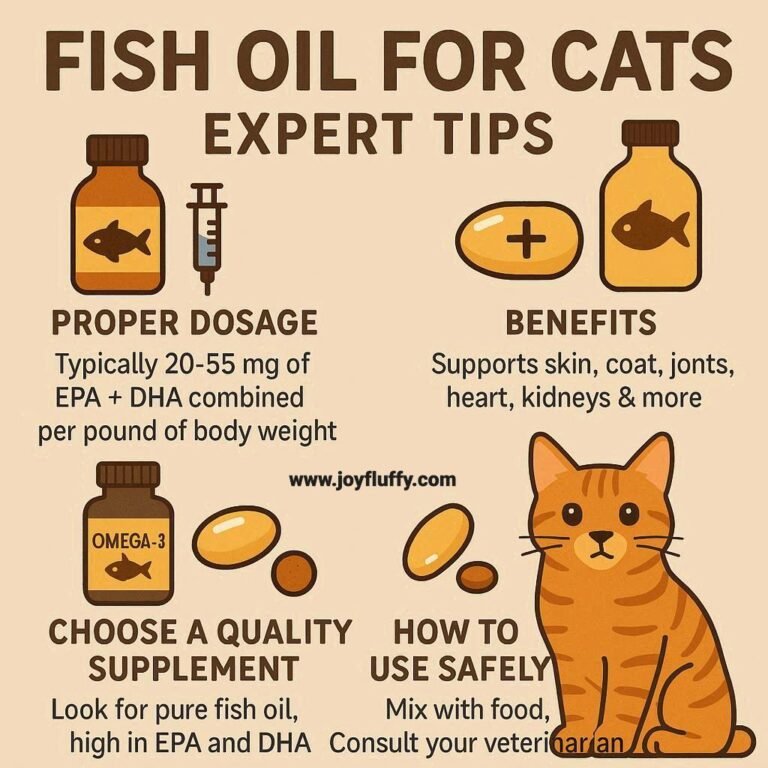Why Pets Make Us Happier
Why Pets Make Us Happier: The Science of Animal Companionship
Exploring the profound ways animals enhance our well-being
Coming home to a wagging tail feels magical. A gentle purr or cheerful bird chirping brings instant joy. Pets aren’t just animals sharing our spaces—they’re family members. They profoundly impact our daily happiness and well-being. But why do pets make us happier? Evolutionary biology, psychology, and neuroscience provide fascinating answers. These sciences reveal how deeply our happiness connects with our animal companions.
Humans and animals share a relationship spanning thousands of years. Practical partnerships evolved into emotionally rich bonds we cherish today. Modern science uncovers remarkable ways pets influence our lives. They boost mental health, physical wellness, and social connections. Research provides compelling evidence for what pet owners know intuitively. Life becomes better with a furry, feathered, or scaled friend by your side.
The Emotional Bond Between Humans and Pets
The emotional connection between humans and pets runs deeper than many realize. Our brains release oxytocin when we interact with pets. Scientists call this the “love hormone.” It’s the same neurochemical involved in human bonding and attachment. This biological response explains why pets make us happier on a fundamental level.
Pet owners develop secure attachment relationships with their animals. Scientists compare these bonds to relationships between parents and children. They also resemble bonds between romantic partners. These relationships provide security, comfort, and unconditional acceptance. They prove particularly valuable during challenging times.
The Power of Unconditional Love
Pets offer unconditional love and acceptance. This might be the most significant reason why pets make us happier. Human relationships can involve judgment, expectations, or conflict. Pets love us simply for who we are. They don’t care about bad hair days or career setbacks. They ignore our social awkwardness completely.
This unconditional acceptance creates a safe emotional space. We can be our authentic selves without fear of rejection. This emotional safety net proves particularly valuable today. Our world grows increasingly complex and demanding. Pets provide consistent comfort when we face stress, disappointment, or loneliness. They help us maintain emotional stability and resilience.
Building Trust and Connection
Daily interactions with pets build deep trust over time. Feeding schedules create routine connections. Play sessions strengthen emotional bonds. Even quiet moments together foster closeness. This consistent interaction helps explain why pets make us happier. We develop meaningful relationships that enrich our daily lives.
Mental Health Benefits of Pet Ownership
Pet ownership provides profound and well-documented mental health benefits. Studies consistently show something remarkable. Pet owners experience lower rates of depression and anxiety. They also show less psychological distress compared to people without animal companions. But why do pets make us happier from a mental health perspective?
Stress Reduction and Anxiety Relief
Interacting with pets significantly reduces cortisol levels. Cortisol is the hormone associated with stress. At the same time, these interactions increase serotonin and dopamine production. Scientists link these neurotransmitters to happiness and well-being. Simply petting a dog or cat lowers blood pressure and heart rate. This creates an immediate calming effect that manages daily stress and anxiety.
The rhythmic nature of petting helps create calm. The warmth of an animal’s body provides comfort. Soothing sounds like purring or gentle breathing contribute to peace. All these elements create a meditative-like state. This state promotes relaxation and mindfulness. This natural stress relief mechanism explains why pets make us happier and more emotionally balanced.
Combating Loneliness and Depression
Pets provide constant companionship. This proves particularly beneficial for people struggling with loneliness or depression. Pet presence creates a sense of purpose and routine. Caring for an animal requires daily attention and responsibility. This structure helps people dealing with depression. It provides motivation to maintain basic daily activities.
Pets provide emotional support that is non-judgmental and consistently available. They offer comfort during difficult periods. This comfort comes without the complexity that sometimes accompanies human relationships. Many pet owners report feeling less isolated. They also feel more emotionally stable when sharing their lives with animal companions.
Creating Daily Structure
Pet care creates natural daily routines. Morning feeding times establish wake-up schedules. Walk times provide regular outdoor activities. These routines benefit mental health significantly. They give purpose to each day and create predictable patterns that support emotional well-being.
Physical Health Benefits of Pet Ownership
Pets contribute to our happiness by promoting better physical health. The connection between physical wellness and happiness is well-established. Pets play a surprising role in keeping us healthier and more active.
Increased Physical Activity
Dog ownership naturally increases physical activity levels. Daily walks provide regular exercise many people might otherwise skip. Play sessions and outdoor adventures with pets contribute to better cardiovascular health. They support weight management and overall physical fitness. All these factors directly impact our mood and energy levels.
Dog owners walk an average of 22 minutes more per day than non-dog owners. This contributes to better physical health. It increases exposure to sunlight and fresh air. Both elements serve as natural mood boosters.
Cardiovascular Health Benefits
Pet ownership associates with lower blood pressure and reduced cholesterol levels. It also decreases the risk of heart disease. The stress-reducing effects of pet companionship combine with increased physical activity. This creates a powerful combination for cardiovascular health.
One landmark study appeared in the American Journal of Cardiology. Researchers found that pet owners had significantly better survival rates following heart attacks. This compared to those without pets. The study highlights the profound impact that animal companionship can have on physical health and recovery.
Immune System Support
Pet ownership can strengthen immune systems. Early exposure to pet allergens may reduce allergy development in children. Regular interaction with pets exposes us to beneficial microorganisms. This exposure can boost overall immune function and help prevent certain health conditions.
How Pets Improve Social Life
Contrary to stereotypes about isolated pet owners, pets actually enhance social connections. They increase community involvement too. This social aspect helps us understand why pets make us happier. Strong social relationships are fundamental to human well-being.
Natural Conversation Starters
Pets serve as natural ice breakers in social situations. Dog parks provide opportunities to connect with fellow pet owners. Veterinary clinics, pet stores, and neighborhood walks do the same. These settings let us meet people who share similar interests and experiences. Casual encounters often develop into meaningful friendships and support networks.
Pet ownership creates instant common ground with other pet lovers. This shared experience facilitates social connections that might not otherwise develop. This expanded social network contributes significantly to overall happiness and life satisfaction.
Community Involvement and Belonging
Pet ownership leads to increased community involvement. Training classes bring people together. Pet-friendly events create social opportunities. Volunteer work at animal shelters builds connections. Participation in breed-specific clubs and organizations does the same. These activities create a sense of belonging and purpose. This extends beyond the immediate pet-owner relationship.
Building Social Skills
Caring for pets helps develop empathy and responsibility. These skills transfer to human relationships. Pet owners often become better at reading social cues. They develop stronger nurturing abilities. Walking dogs creates regular opportunities for neighborhood interactions and community connection.
Different Pets, Different Sources of Happiness
Research on why pets make us happier often focuses on dogs and cats. However, different types of pets offer unique benefits and sources of joy. Understanding these differences helps people choose the right companion for their lifestyle and needs.
Dogs: Active Companions and Loyal Friends
People often consider dogs the ultimate companion animals. They offer high levels of interaction, loyalty, and emotional responsiveness. Their social nature and ability to read human emotions make them exceptional therapy animals. They excel as emotional support companions. The active lifestyle that dogs require provides natural opportunities for exercise and outdoor activities.
Cats: Calming Presence and Independent Companionship
Cats offer a different but equally valuable type of companionship. Their purring has therapeutic effects. The vibrations promote healing and relaxation. Cats provide comfort and presence without requiring intensive daily care that dogs need. This makes them ideal for people with busy lifestyles or limited mobility.
Small Pets and Exotic Animals
Birds, rabbits, guinea pigs, fish, and other small pets each offer unique benefits. Watching fish swim reduces blood pressure and promotes relaxation. Birds can provide entertainment and companionship through their ability to learn and interact. These pets often require less space and maintenance. They still provide the joy of caring for another living being.
Choosing the Right Pet
Different pets suit different lifestyles and personalities. Active people might prefer dogs for hiking and running companions. Busy professionals might choose cats for lower-maintenance companionship. Those in small spaces might select fish or birds. The key is matching pet needs with owner capabilities and preferences.
The Science Behind It All
The question of why pets make us happier has attracted significant scientific attention. This led to the development of human-animal interaction research. This interdisciplinary field combines psychology, neuroscience, and animal behavior. Scientists use it to understand the mechanisms behind the human-pet bond.
Brain Chemistry and Bonding
Neuroimaging studies reveal fascinating results. Interacting with pets activates the same brain regions involved in human social bonding and attachment. The release of oxytocin, endorphins, and other positive neurochemicals creates a biological basis. This explains the happiness we experience with our pets.
Evolutionary Connections
Research reveals that pet ownership benefits may be partially explained by the biophilia hypothesis. This idea suggests that humans have an innate affinity for other living things. This evolutionary perspective suggests our connection to animals is hardwired into our biology. The happiness we derive from pets becomes a natural and fundamental aspect of human nature.
Research and Resources
For those interested in diving deeper into this research, the American Psychological Association maintains comprehensive resources. They focus on the psychological benefits of human-animal interactions at https://www.apa.org. The site provides access to peer-reviewed studies and expert analysis on this growing field.
Challenges and Balance: The Responsibility of Pet Ownership
While exploring why pets make us happier, we must acknowledge something important. Pet ownership comes with significant responsibilities and challenges. You should make the decision to bring a pet into your life thoughtfully. Consider factors such as time, financial resources, living situation, and long-term commitment.
Financial Considerations
Pets require ongoing expenses. Food, veterinary care, grooming, and supplies cost money. Emergency medical treatments can be particularly costly. Prospective pet owners should carefully consider their financial capacity. They need to provide proper care throughout their pet’s lifetime.
Time and Lifestyle Commitments
Different pets require varying levels of daily care and attention. Dogs need regular exercise and social interaction. Cats require litter box maintenance and regular grooming. All pets need consistent feeding schedules and veterinary care. You must balance the happiness that pets bring against the time and energy required. Proper care demands significant commitment.
End-of-Life Considerations
The grief associated with losing a beloved pet can be intense and long-lasting. The joy pets bring to our lives far outweighs this eventual sadness for most people. However, you should understand something important when opening your heart to animal companions. You must accept the reality of their shorter lifespans.
Making the Right Choice
Consider your lifestyle honestly before choosing a pet. Do you have enough time for daily care? Can you afford unexpected medical expenses? Is your living situation suitable for the pet you want? Answering these questions helps ensure a successful pet-owner relationship that truly enhances happiness.
Embracing the Joy of Animal Companionship
The science is clear: pets make us happier in measurable, significant ways. They enhance our mental health, physical well-being, and social connections. A dog’s enthusiastic greeting triggers neurochemical responses. A purring cat provides calming presence. Our animal companions offer unique and irreplaceable contributions to human happiness and quality of life.
The bond between humans and animals represents one of the most beautiful aspects of our shared existence. It transcends species barriers and speaks to something fundamental about our capacity for love, compassion, and connection. You might feel drawn to a puppy’s playful energy. You might prefer a cat’s independent grace. You might choose the quiet companionship of smaller pets. There’s an animal companion that can enrich your life in countless ways.
For those considering pet ownership, remember this important point. The question isn’t just why pets make us happier. Ask yourself whether you’re prepared to make the commitment that responsible pet ownership requires. When you make that commitment with full understanding and preparation, the rewards are immeasurable. These rewards come in terms of happiness, health, and meaning.
Pets remind us of simple pleasures in our fast-paced, digitally connected yet often emotionally disconnected world. They teach us about presence, touch, and unconditional love. They show us how to live in the moment. They help us find joy in simple things. They encourage us to approach each day with curiosity and enthusiasm. In doing so, they don’t just make us happier—they make us more fully human.
The next time you see the eager face of a dog waiting for a walk, take notice. Listen to the contented purr of a cat in your lap. Watch the graceful movements of fish in their tank. Remember that you’re witnessing one of nature’s most remarkable gifts. Different species can enrich each other’s lives in profound and lasting ways. This is why pets make us happier. This is why the love we share with our animal companions remains one of life’s greatest joys.






